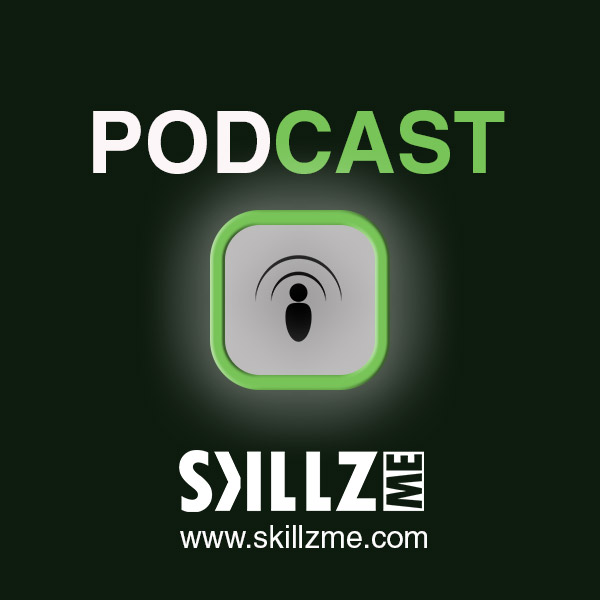
Small and medium businesses (SMBs) are major leaders of today’s economic growth. Salesforces new 2019 report examines the obstacles SMBs encounter on the road to success and offers insights on the decision-making and actions of the leaders who run them. Learn about the latest innovations and industry changes affecting SMBs and get the latest small business statistics.
Salesforce is a cloud computing service as a software (SaaS) company that specializes in customer relationship management (CRM). In their third edition of Small and Medium Business trends report, Salesforce analyzed from 2000+ SMB leaders responses the market trends, their motivation, challenges, and goals.
The 2019 report goes into details on demographics which shape SMB experience and how they deal with technology in their environment.
The survey was conducted online by the Harris Poll on behalf of Salesforce, between February 11 and March 7, 2019, among 2,011 SMB owners and leaders in North America, Europe, and Asia Pacific. Respondents were 18 years of age or older, and their businesses had between 2–200 employees.
Small and medium-sized businesses (SMBs) around the world are major drivers of today’s economic growth, representing over 90% of the business population, 60% – 70% of employment, and 55% of GDP in developed economies.
Their leaders are hard-working, passionate entrepreneurs who face unique challenges, which change and evolve as their businesses grow.
This report examines the obstacles SMBs encounter on the road to success, offering insights on the decision-making and actions of business leaders who run them.
The 2019 report looks into four top areas:
- Demographics Shape Entrepreneurial Experiences
- Customer Expectations Dictate Investment Plans
- Advanced Technology Comes to SMBs
- Trust Matters Above All Else
Experiences matters
We can readout of the 2019 report some major trends and facts. For example, most of the SMB’s get founded because people want to be their own boss and incorporating the fact of the age groups working, we can see that Millennials/Gen Zer’s age groups are interesting to start a side business.
Interesting to read is also the fact that only a minority of entrepreneurial SMB leaders see themselves to have good leadership skills. According to the report, male leaders see self-discipline as their most critical characteristic while female leaders find people and communication skills as their biggest asset.
Out of my own experience, I can only comment with a big yes, it is the biggest challenge to actually find the right talent to hire for male leaders. Female leaders see their biggest challenge into having access to money and capital.
SMB leaders who do seek growth experience some common obstacles along the way. Given that access to capital is a top constraint on overall business activities, it’s no surprise that maintaining financial growth is their top challenge.
Sales and customer service are considered the most crucial roles for SMB success – a nod to the importance of not just acquiring customers, but keeping them happy in the long term.
Customer Expectations
Finding, winning, and keeping customers is key to business success, but this can be difficult when those customers expectations are a moving target. It turns out the rapid shift in customer expectations is the biggest challenge to satisfying customers, rising above keeping up with demand, quality control, staff constraints, and others.
SMBs have a lot to consider when planning how to allocate their limited technology budgets. Customer relationship management (CRM) systems take the top spot, underscoring just how strategically important the customer experience is to modern business success. Financial software and hardware round out the top three technology priorities.
Technology priorities vary between small and medium-sized businesses, possibly because smaller businesses are still building their technical infrastructure.
Advanced Technology
On average, SMB leaders report using 5.2 applications to run their business, with 31% using five or more. Increasingly, technologies like AI and CRM which are entrenched in large global companies appear to be moving downstream to SMBs. Introducing new technology isn’t always easy. SMB leaders are most constrained by budgets, justifying the expense, and difficulty implementing and rolling out new technologies.
CRM systems are more common in larger companies. Medium-sized businesses are 136% more likely than small businesses to use a CRM system (72% vs. 30%).
Conversations about artificial intelligence (AI) have become mainstream, but the technology’s early use has been mostly relegated to enterprises.
Among those already using AI, the top use cases are automated service chatbots, lead prioritization, and predictive audiences for marketing. Looking ahead, automatic recommendations for customers and predictive sales forecasting are among the top anticipated uses.
Trust Matters
As opaque data privacy policies proliferate, security breaches regularly make headlines, and regulations like the European Union’s GDPR take root, trust is a hot topic for technologists across the globe. This is all the more important when considering that 54% of customers don’t believe companies have their best interests in mind. Trust isn’t just an imperative for business leaders, but a potential competitive differentiator.
This sentiment rings true with SMB leaders, who overwhelmingly view trust as the most critical element in their relationships with customers, employees, and vendors alike.
Summary
The 2019 report reflects also the details to each country and region, why people start an SMB, their top characteristics, challenges, and top growth challenges. We can read out that in all the countries “Being their own boss” is the number one reason with the exception of Hong Kong where people seek more for flexible working hours. Across the globe, the top challenge in meeting customer expectations is seen in keeping up on their expectations with the exception of France, where Staff constraints, is the top challenge.
Get the full report from Salesforce and see all the details of the 2019 survey.


![2025 Infographic Design Trends: New Ideas & Approaches [Infographic] hero-image-2025-Infographic-Design-Trends](https://www.skillzme.com/wp-content/uploads/2025/02/hero-image-2025-Infographic-Design-Trends-200x200.jpg)
![2024 Global Trends in AI [Infographic] 2024 Global Trends in AI](https://www.skillzme.com/wp-content/uploads/2024/11/hero-image-2024-global-trends-in-ai-infographic-200x200.jpg)
![How Green is the iPhone [Infographic] How Green is the iPhone](https://www.skillzme.com/wp-content/uploads/2025/02/hero-image-How-Green-is-the-iPhone-200x200.jpg)


Recent Comments